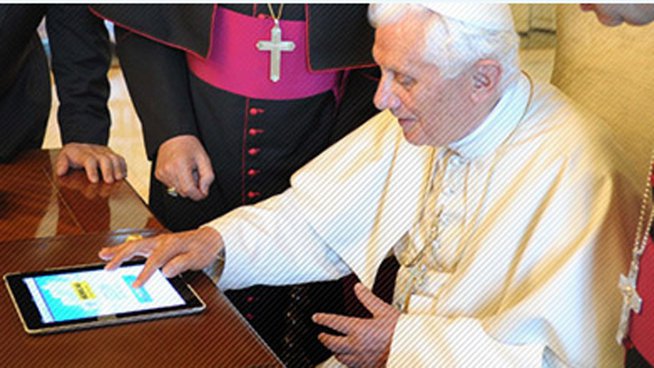SUMMARY
This is AI generated summarization, which may have errors. For context, always refer to the full article.

QUEZON CITY, Philippines – Gaudencio Cardinal Rosales says it is. Speaking to 12,000 young people who gathered for the 2011 World Youth Day vigil at the Ateneo de Manila University over the past weekend, the Cardinal said the Internet, texting and other products of man’s knowledge are posing competition to Jesus Christ.
The Archbishop of Manila was trying to explain to the Filipino youth the lament Pope Benedict XVI expressed on modern society’s “amnesia” about God. “This is all the more important today when we see a certain eclipse of God taking place, a kind of amnesia which albeit not an outright rejection of Christianity is nonetheless a denial of the treasure of our faith, a denial that could lead to the loss of our deepest identity,” the leader of the world’s1.2 billion Roman Catholics said.
Rosales’ fears about the loss of faith as caused by modern technology echoes the oft-repeated warning of the Church that technology cannot replace real human contact, let alone God.
In January this year, the Pope gave his blessings to social networking but stressed that “(i)t is important always to remember that virtual contact cannot and must not take the place of direct human contact with people at every level of our lives.”
In his Palm Sunday speech last April, while acknowledging how advances of technology have made life more convenient for people, the Pope also warned that “man will pay the price for his pride if he believes technology can give him the powers of God.”
“Mankind has managed to accomplish so many things: we can fly! We can see, hear and speak to one another from the farthest ends of the earth. And yet the force of gravity which draws us down is powerful,” the Pope added.
Reinvigorating the Church
While in Madrid, Spain for the biggest bi-annual youth gathering of the Catholic Church, the Pope also decried the “prevailing superficiality, consumerism and hedonism, the widespread banalization of sexuality, the lack of solidarity, the corruption.”
The holding of the 2011 World Youth Day in Madrid is very telling of Pope Benedict XVI’s priority to reinvigorate the Catholic faith in its former European strongholds such as Spain, which has increasingly become more secular than its former colonies where it first spread Christianity including the Philippines.
With the Pope’s announcement that the 2014 World Youth Day celebration will be held in Brazil, it seems that the next battleground is Latin America, home to 43% of the world’s Catholic population.
Cyberspace is in itself a battleground.
Since he assumed the papacy in 2005, Pope Benedict XVI has presided over the rolling out of various Vatican online platforms such as the multimedia portal (http://www.news.va/en)which he launched using Twitter for iPad.
The 2011 World Youth Day in Madrid was a reflection of how the Church has increasingly become more Internet-savvy to revitalize faith especially among the youth. The official site of the gathering maintained an active presence throughout the event, integrating social media platforms and live-streaming the Pope’s appearances and other activities.
Indeed, as the Church attempts to reassert its waning influence and relevance around the world, it also uses new technology to compete in the virtual realm to win the minds and hearts of Netizens. – Rappler.com
Click on the links below for more:
Add a comment
How does this make you feel?
There are no comments yet. Add your comment to start the conversation.